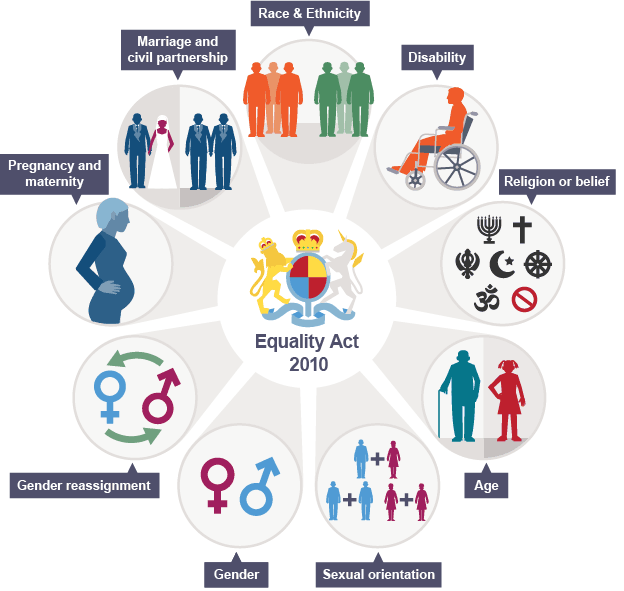Scottish Financial Enterprise (SFE) and Progress Together have submitted a joint response to the Government’s ongoing Call for Evidence on Equality Law. Drawing on insights from across the financial services sector, the submission highlights the impact of the socio-economic duty in Scotland and Wales and sets out a compelling case for its wider application across England.
The response outlines evidence from Progress Together member firms, representing over 30% of the UK financial services workforce, which shows that collecting and acting on socio-economic background data can uncover and help address disparities in progression and pay. It also includes recommendations to improve the duty’s effectiveness without requiring legal commencement, such as mandating socio-economic data reporting, increasing regulator involvement, and enabling more flexible use of the apprenticeship levy.
You can read the full response below.
Question 49: What evidence is there on the effectiveness of the duty in Scotland and Wales and its
voluntary adoption by some public authorities in England?
Evidence on the effectiveness of the duty
The duty came into effect in Scotland on 1 April 2018, with the aim of ensuring public bodies, when making strategic decisions, actively consider the potential impact on those experiencing socio-economic disadvantage. Also known as the Fairer Scotland Duty, public bodies are guided on how to fulfil the duty by statutory guidance issued by Scottish ministers, and the regulator for the duty is the Equality and Human Rights Commission (EHRC). A briefing note for elected members has also been published by the Improvement Service, supporting local decision-making.
In a review of the duty’s implementation, the EHRC found that:
-
It increased organisational awareness and helped formalise consideration of the impact of decisions on certain groups.
-
It improved consideration of socio-economic impacts in strategic decision-making, though there was less evidence of it being used to set or tackle specific priorities.
-
Buy-in from board members, senior managers and elected members was both a key enabler and a key challenge, with awareness-raising still required.
In financial and professional services across Scotland, Wales and England, a range of firms are voluntarily aligning with the principles of the duty. This offers compelling evidence for its broader application and illustrates the sector’s ability to embed socio-economic equity into decision-making.
Effectiveness in improving consideration of inequality
Where applied, the duty has sharpened focus on structural socio-economic inequalities. Progress Together member firms have voluntarily adopted duty-aligned practices, particularly the collection and application of socio-economic background (SEB) data. This has revealed persistent disparities, especially in progression and pay.
Progress Together’s Shaping our Economy report notes:
“Employees from lower SEBs are 30% less likely to progress to senior roles than peers from professional backgrounds,” and
“those who do reach senior levels earn up to £17,500 less per year than colleagues from professional backgrounds” (Laurison and Friedman, 2020).
These disparities cut across age, region and sector and intersect with characteristics such as ethnicity and gender. Data collection has encouraged firms to reconsider how decisions – from hiring to promotion – can reduce inequality.
Reasons for effectiveness or lack thereof
Key enablers include:
-
Leadership and culture: Firms committed to socio-economic inclusion, such as Progress Together members, embed data-led progression strategies.
-
Regulatory support: The legal profession, under the Solicitors Regulation Authority (SRA), shows how reporting can drive progress.
-
Collaborative infrastructure: Initiatives like the Socio-Economic Diversity Taskforce prompted significant employer engagement without legislation.
Where the duty is not enforced or infrastructure is lacking, implementation has faltered. The absence of mandatory SEB data collection and enforcement mechanisms weakens efforts, particularly in England.
Variation across public authorities and populations
Larger institutions with greater resources and engagement with Progress Together are more successful in implementing inclusive practices. Smaller firms often lack the capacity, especially where flexibility in funding (e.g., apprenticeship levy use) is constrained.
Relevance and impact of captured decisions
Initiatives like contextual recruitment, removing academic grade requirements, and regional outreach ensure that decisions impacting progression and opportunity align with reducing socio-economic inequality.
From VOICE: A Blueprint for Inclusion:
“Once data shone a light on the class ceiling, leaders saw that talent was not the issue – opportunity was.”
Unintended outcomes
Voluntary adoption of the duty has generated positive unintended outcomes, including growing investor interest in socio-economic diversity.
As Richard Oldfield, Group CEO at Schroders, notes:
“We have seen a significant increase in enquiries from investors about socio-economic diversity… Our focus on broadening talent has positively impacted our culture within the firm.”
Enablers and barriers to implementation
Enablers:
-
Employer collaboration (e.g. Progress Together)
-
Transparent, standardised data collection
-
Regulatory engagement and taskforce support
Barriers:
-
Lack of legal mandate
-
Cultural resistance and informal networks
-
Inadequate line manager training on inclusive progression
Effectiveness of the enforcement regime
There is currently no statutory enforcement regime in England for the duty, limiting accountability. The SRA model demonstrates how enforcement and transparency can coexist with competitiveness.
Proportionality and value for money
The financial services sector shows that a proportionate and voluntary approach delivers value for money. FSSC and PwC research suggests replacing one employee can cost up to £49,000. Inclusive progression strategies reduce attrition and financial risk.
Question 50: Proportionate steps to improve the duty’s effectiveness without legal commencement
We recommend the following non-legislative measures:
-
Mandate SEB data collection
Require socio-economic background reporting in public authorities and regulated sectors, following the model of gender and ethnicity pay gap reporting. Progress Together found that only 39% of Women in Finance Charter signatories currently collect SEB data. -
Bring regulators within scope
Include regulators such as the FCA and PRA to lead by example and increase transparency. -
Public sector charter for socio-economic inclusion
Develop a charter, similar to the Women in Finance Charter, to promote voluntary commitments from public bodies and encourage local authorities to cascade inclusion expectations through their supply chains and investments. -
Enable use of the apprenticeship levy
Reintroduce support for Level 7 apprenticeships to keep vital pathways to senior roles open for lower SEB employees. -
Foster sector-specific collaboration
Continue supporting initiatives like the Socio-Economic Diversity Taskforce to sustain momentum and drive cross-sector action.
Question 51: Evidence on effective approaches to reducing socio-economic inequality in decision-making
Use of data and evidence
Robust data is the foundation. Progress Together uses standardised SEB measures aligned with the Social Mobility Commission, particularly parental occupation at age 14.
Findings from our Shaping the Sector report (200,000+ employees) have led to:
-
Setting progression goals to mirror SEB representation across the workforce
-
Analysing performance through an SEB lens
-
Tracking intersectionality (e.g. SEB + gender or ethnicity)
Participation of disadvantaged groups
Effective organisations engage lower SEB individuals in decision-making via:
-
Reverse mentoring
-
Contextual hiring
-
Regional outreach and recruitment
From VOICE:
“Talent was not the issue—opportunity was.”
Monitoring and evaluation
Firms aligned with Progress Together track class pay gaps and SEB-based progression, enabling evaluation and iterative improvement.
Transparency and accountability
The SRA model demonstrates that mandated transparency works. Progress Together recommends similar approaches in financial services, showing that transparency can support, not hinder, competitiveness.
About us:
Scottish Financial Enterprise (SFE)
SFE is the representative body for Scotland’s financial services industry. Our aim is to drive a stronger, more inclusive and sustainable sector that can play its part in solving the big challenges of our time, both locally and globally. We have around 120 member companies ranging from global organisations headquartered in Scotland like Baillie Gifford, Aberdeen, Lloyds Banking Group and NatWest Group, to UK and international companies with substantial operations in Scotland like Barclays, BlackRock, Morgan Stanley, Phoenix Group, and Royal London. We also represent small, locally based fintechs and support companies across the financial services spectrum.
Progress Together
Progress Together is a membership body working across the UK financial services sector to enable individuals from lower socio-economic backgrounds to progress into senior roles. Our 50+ member firms represent over 30% of the UK financial services workforce, spanning banking, asset management, insurance, investment and fintech. Our work is underpinned by data, research and employer collaboration, enabling us to influence systemic change in how social mobility is understood and addressed.




